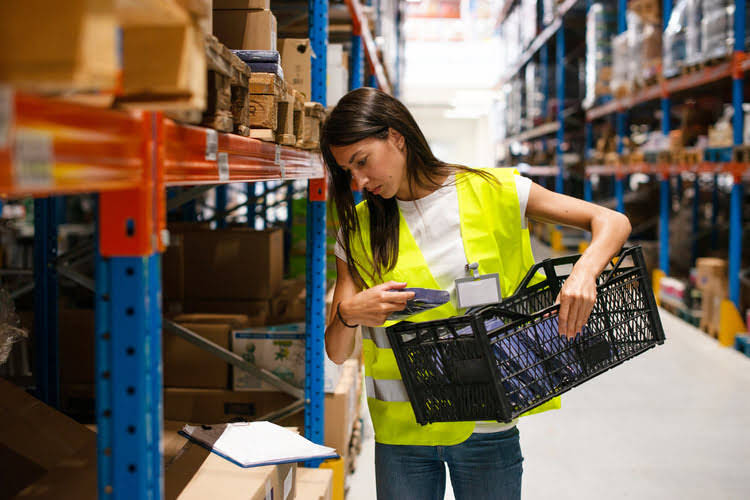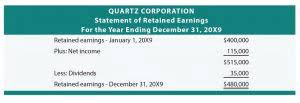
Even with a clear understanding of FOB terms, mistakes can happen, leading to increased shipping costs, shipment delays, or even legal complications. Incoterms are international commercial terms published by the International Chamber of Commerce. They are meant to make foreign trade seamless with clearly defined roles for buyers and sellers in the global market.
- Here, incoterms (international commercial terms) are the standard terms — that define and describe the transactions involving two parties, usually the exporter and the importer of products.
- If the goods are damaged in transit, the customer should file a claim with the insurance carrier, since the customer has title to the goods during the period when the goods were damaged.
- Understanding the nuances of FOB is paramount for businesses engaged in international trade, as it directly influences pricing, risk management, and logistical strategies.
- Moreover, the FOB type also specifies who is legally accountable for the goods being shipped and when that responsibility is transferred during transportation.
- FOB is not a one-size-fits-all term; it comes with a variety of designations that provide more specific guidance on shipping responsibilities.
- Also, buyers would be responsible for goods once they leave the warehouse, dock, factory, or premises.
What Are the Costs for Free on Board (FOB) Freights?
Instead, the manufacturer retains ownership of the equipment until it’s delivered to the buyer. Both parties don’t record the sale transaction in their general ledgers until the goods arrive at the buyer’s location. Additionally, if the goods are damaged in transit, the seller is responsible for replacing them at their own expense.
A common mistake is using FOB Incoterms® for containerised cargo
Factors like the mode of transportation, the nature of the goods, the relationship between the buyer and seller, and individual preferences can all influence the choice of term. Other terms, like CIF (Cost, Insurance, and Freight) or EXW (Ex Works), offer different arrangements regarding costs, responsibilities, and risk points. For FOB Destination Point agreements, ownership transfers at the opposite end of the journey.
- So, the inventory would be an asset in their books even though the goods hadn’t arrived yet.
- So, the buyer pays for the goods before they are received and usually bears the cost of shipping and liabilities of transportations, including loss, damage, or theft.
- As an example of FOB destination accounting, suppose the value of the goods is 5,000 and the freight expense to the buyers destination of 600 is paid in cash by the seller.
- Since the ownership of the goods doesn’t transfer to the buyer until the goods arrive at the delivery point, the risk of loss during transit is on the seller.
- Also, under FOB shipping point terms, the supplier is responsible for the cost of shipping the product.
- If something happens while the goods are on the delivery truck, the seller is responsible for them because it still legally owns them.
Insurance Claims Under FOB Shipping Point Terms

That’s because buyers have more control over the shipping logistics, including insurance and transport costs. Buyers can sign with the shipper of their choice and take as much coverage as they see fit to insure their shipments. Furthermore, the purchaser of goods is accountable for the products at the point of origin when the terms “FOB Origin, freight prepaid” got employed. It establishes the conditions of the contract, determining who is responsible for shipping costs and damaged shipments. If the seller of goods quotes a price that is FOB shipping point, the sale takes place when the seller puts the goods on a common carrier at the seller’s dock. Therefore, when the goods are being transported to the buyer, they are owned by the buyer and the buyer is responsible for the shipping costs.


Once the goods are at the buyers destination, the ownership of the goods and the risk passes to the buyer. FOB accounting deals with the treatment of freight charges and how they are recorded in the accounting system. By paying attention to these details, you can craft fob shipping point a watertight FOB agreement that protects your interests and simplifies the shipping process for all parties involved. It further refers to when a client accepts delivery of goods that have been supplied to them by a supplier and have left the provider’s shipping port.

As an example of FOB shipping point accounting, suppose the value of the goods is again 5,000 and the freight expense from the shipping point of 600 is paid in cash by the buyer. Communication may also be problematic if the buyer relies solely on people who act for the seller. The buyer may have to pay additional fees at the port, such as docking fees and customs clearance fees before the goods are cleared. That’s because the seller may use a transport carrier of their choice who may charge the buyer more to increase the profit on the transaction. FOB Destination refers to when the vendor’s liability for and custody of the products passes to the buyer when the goods arrive in great condition at the buyer’s location.
Freight Prepaid and Added
Both parties must clearly understand their responsibilities and maintain open communication throughout the shipping process to address any issues that may arise. FOB defines who pays for the shipping costs and who is responsible for a lost, stolen or damaged shipment. There are certain situations when CIF is the better option to use when shipping and receiving goods. It’s a good idea to use a CIF contract when buyers deal with international suppliers, especially when sellers have easy and direct access to shipping vessels. CIF agreements cut down the need for buyers to take care of logistics in areas where they may not have experience, so all they need to do is simply take possession of the shipment once it arrives.
Resolving any issues that arise during transportation can also be time-consuming for the buyer. By understanding the implications of different FOB terms, you can navigate the complexities of shipping costs and responsibilities. Whether it’s deciding who files claims for damaged goods or determining the final price, FOB terms affect every aspect of the shipping process. The goods are considered to be delivered into the control of the buyer as soon as they’re loaded onto the ship. When the voyage begins, the buyer then assumes full liability, including transport, insurance, and additional fees. CIF is commonly used for large deliveries, including oversized goods, that are shipped by sea.


Recent Comments